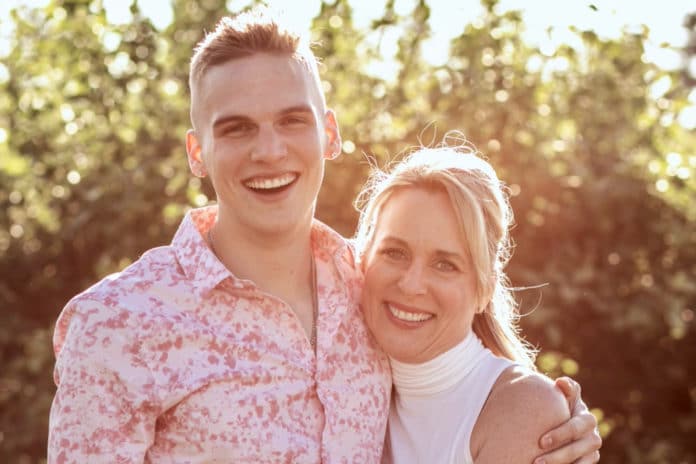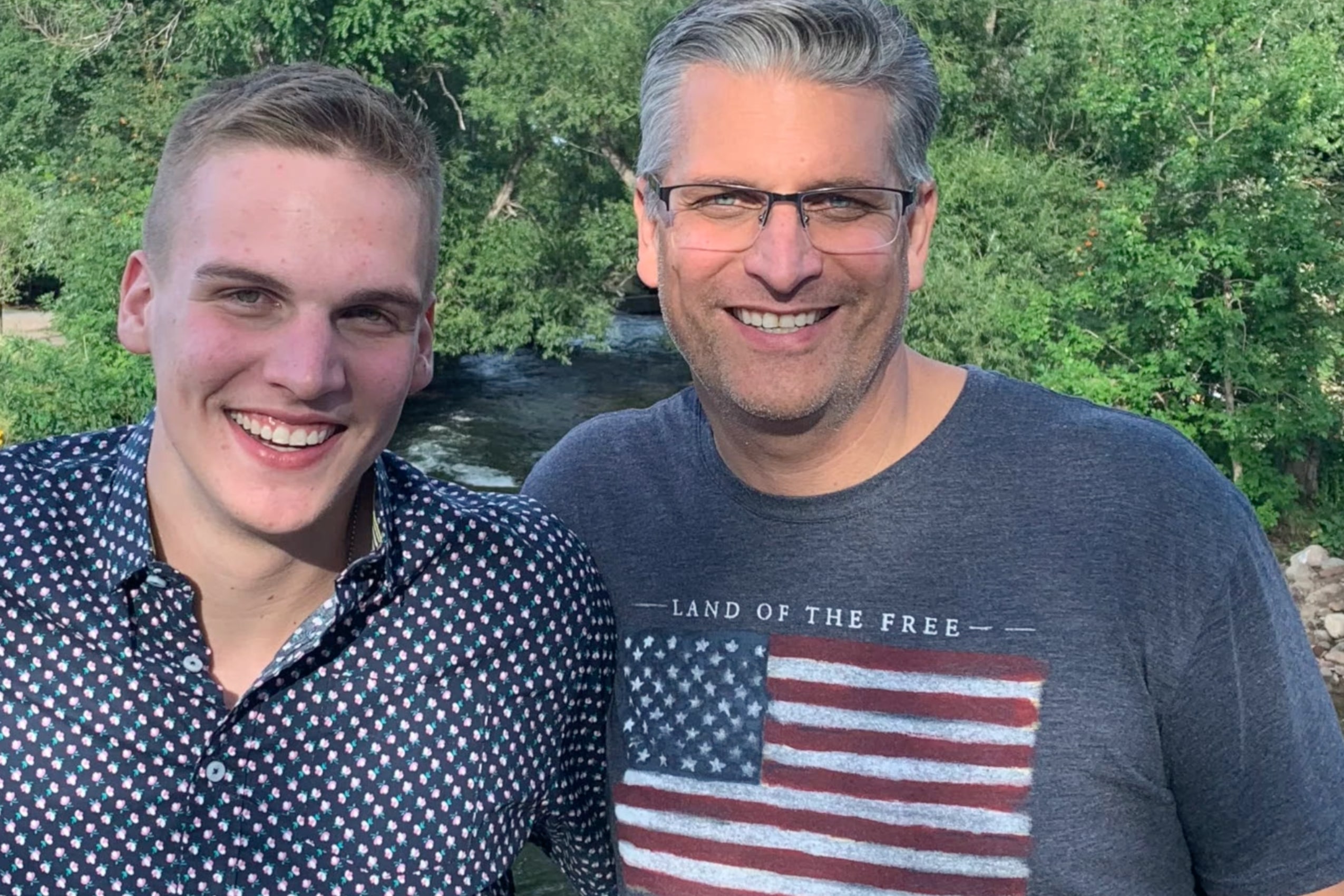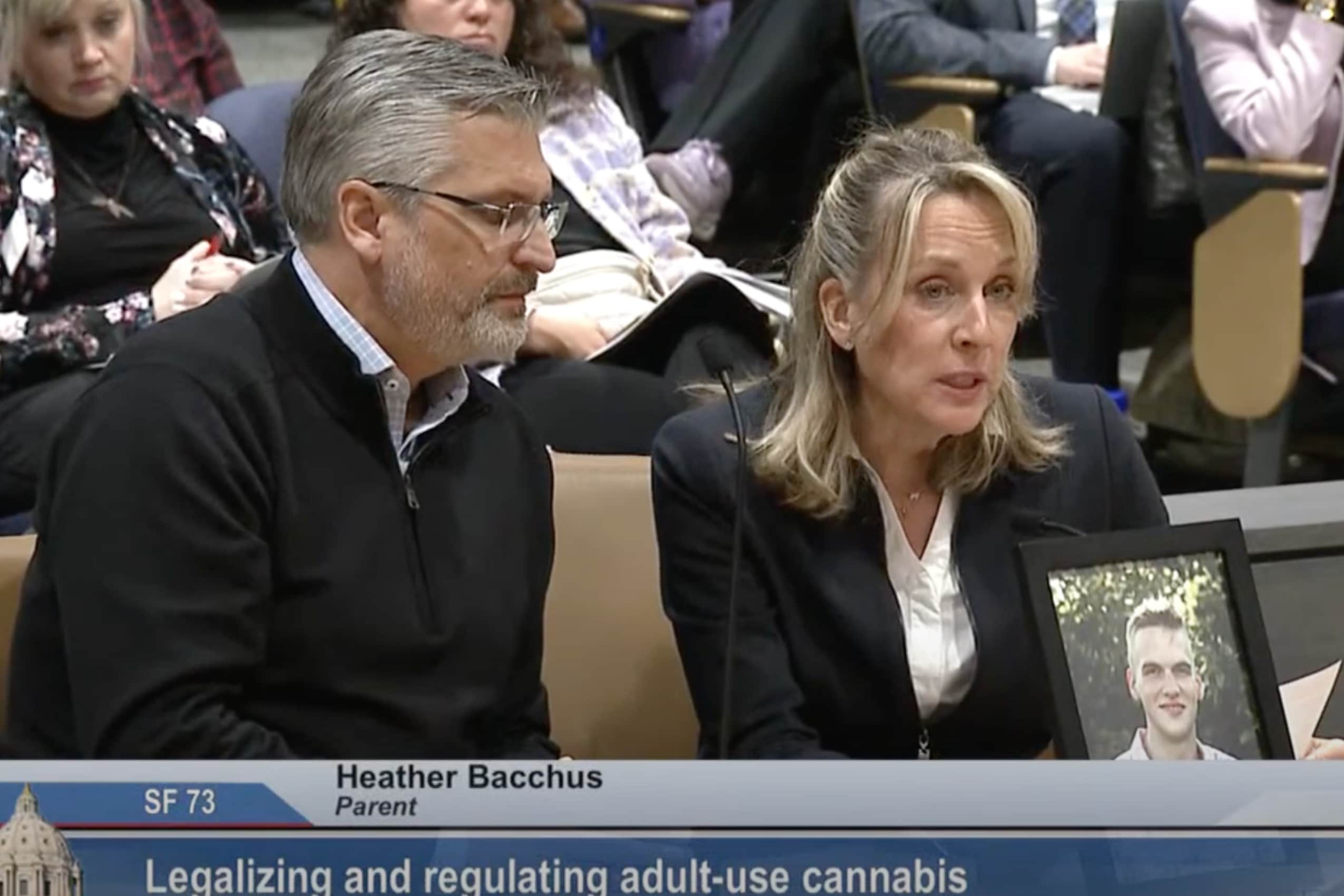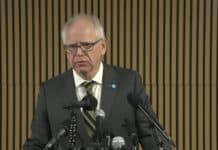
This week on Liz Collin Reports, a mother who lost her son to suicide during a cannabis-induced psychosis shared her heartbreaking story and a message to all who will listen: do not legalize recreational marijuana in the state of Minnesota.
Heather and Randy Bacchus’s 21-year-old son, Randy, committed suicide in 2021 after spending years using cannabis.
At the time, the Bacchuses were unaware of the full effect marijuana use was having on Randy. Now, after extensive research, they know he was in a state of psychosis induced by marijuana use when he took his own life.
Heather Bacchus said Randy was always a “creative little soul” as a child. He liked art, he played sports, and other than being diagnosed with ADHD, “he was just a pretty normal kid,” she said.
She and her husband intended and tried their best to raise “happy, healthy kids,” Bacchus explained. Randy turned to marijuana when he was 15 years old, mostly to fit in with older friends. His parents did not condone his drug usage in any way. They created consequences and made it clear that addiction runs in their family.
“When it comes down to it, as much as we wanted to help him understand, once kids use it, it is so strong that they are very easily hooked,” Bacchus said.
Today, marijuana is much more potent than it was in the ‘60s, ‘70s, and ‘80s, she said.
“When my son was using, I knew what dabbing was, but I didn’t know that it was that highly potent,” Bacchus said. “I knew the marijuana was stronger, but I didn’t know the percentages.”

If recreational marijuana use becomes legal, kids will get the message that “because it’s legal, it’s safe,” Bacchus said. They will look for the “benefits of it rather than the reality and the science that shows it’s not safe for a developing brain.”
“The consequence for the kids is that their brains are developing, and [then] a higher, potent product comes in and disrupts that brain development. So the younger they start using, how frequent they use, and the potency really contribute to how affected their brain will be.”
The damaging effects of cannabis
Randy wanted to go to college at the University of Colorado-Boulder, so despite his parents urging him to stay close to home, he moved to Colorado after high school.
Bacchus said once he was out there, it was very easy for him to obtain a medical marijuana card, since he had been diagnosed with anxiety and depression in high school after starting to use cannabis.
Randy did “fairly well” in Colorado on his own.
“That was the hard part, was that he functioned pretty well and he was independent,” Bacchus said.
Randy had a full-time job and paid his own way. His parents began to see evidence of his paranoia in 2020, when he became worried that his roommate was out to get him, but he couldn’t explain why.
“It was just a little odd, but that paranoia grew and it factored into his job further into early 2021,” Bacchus said. Randy ended up quitting two jobs within six months because he was “perceiving things that just really weren’t going on.”
But at the time, Bacchus and her husband were unaware that paranoia was playing a big part.
Then in March of 2021, Randy had a “full-blown psychotic break,” Bacchus said. He believed the FBI and the mob were after him and listening to his phone.
Following this, his parents helped him get into a treatment center — but he stayed for a mere hour, finding someone right outside the center who had marijuana.
“And then fast forward, he was really working hard because he wanted to quit, but he didn’t want to go to treatment. He thought he could do it on his own,” Bacchus explained.
He was working with a psychiatrist and a psychologist because that was what he was willing to do at the time.
He had goals and dreams, Bacchus said. He was planning to visit home at the end of summer 2021 to promote his music, although this was part of his “grandiose, delusional behavior,” as he wasn’t musically inclined, his mother explained.
“I do believe that eventually he probably heard voices and maybe they told him that this was what he needed to do (take his life). I’m really not sure,” Bacchus said. He went to confession just a few days before his death and Googled “Jesus” three times.
Since Randy’s death, Bacchus said they have “learned so much” about his life.
“We have his journals, we have video evidence,” she said. “It really gives us a clear picture. So on one hand, although it’s very difficult to watch and very difficult to read, it really helps us understand where he was at, and he wasn’t well.”
“And unfortunately people are not aware of this — that it is a result of cannabis use, and that’s what we hope to let people know,” she continued.
A bill moving through the Minnesota Legislature to legalize recreational marijuana use for those over 21 is facing criticism for the age limit, with opponents saying this doesn’t account for brain development in young adults.

Bacchus encouraged anyone who is concerned to reach out to their representatives and senators, either by mail or email.
She said if her son had known the effects marijuana would have on his brain, “he may never have tried it.” She and her husband hope to provide as much information as they can on the dangers of using cannabis, especially for young people.
You can reach out to unezfbsgup@tznvy.pbz or visit https://www.beextraordinarybeyou.com/ to follow along with the Bacchuses’ journey.
If you or someone you know is struggling with thoughts of suicide, there is help available 24 hours a day. Call the National Suicide Prevention Lifeline at: 988.
LISTEN:










